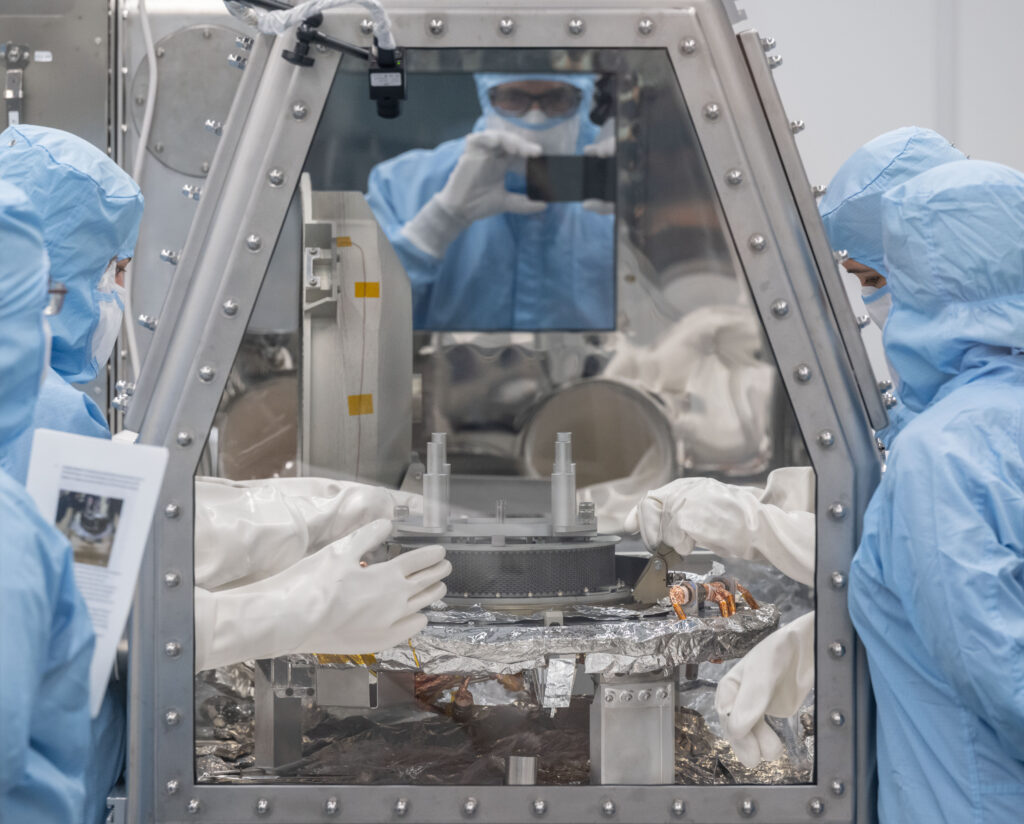As the astromaterials curation team at NASA’s Johnson Space Center continues to collect the bonus asteroid Bennu particles located outside the OSIRIS-REx TAGSAM (Touch-and-Go Sample Acquisition Mechanism) head, they’ve also completed additional steps toward disassembly and reveal of the bulk asteroid sample inside the head.

Curation scientists removed 14 circular witness plates from the top of the TAGSAM head on Monday and Tuesday. These plates were used to monitor interior environmental conditions of the spacecraft at various points during the mission and were carefully contained and stored away for contamination knowledge.
After removing all 14 plates and collecting any remaining loose dust, the team removed the TAGSAM head from its avionics deck platform and had the first opportunity to view the 24 surface contact pads on the bottom of the head and the asteroid sample beneath the collector head.
When the sample collector touched the asteroid in October 2020, these surface contact pads trapped fine-grained asteroid rocks and dust directly from Bennu’s surface layer. The materials in the contact pads will provide a unique set of samples that will tell scientists about the conditions at the very surface of Bennu.
The asteroid material on and interior to the capture ring — the secure base into which the TAGSAM was seated when stowed — came from the sample collection event. During collection, TAGSAM shot nitrogen gas at Bennu to push asteroid particles from as deep as 19 inches (50 cm) below the surface into the TAGSAM head, which sealed with a flap. If collected particles held that flap open, they would fall out into the area interior to the capture ring.
These two sets of collected materials will thus give scientists information about the surface material and material at greater depths below the surface. Altogether, these fine-grained samples from the asteroid will help scientists and researchers make new discoveries about the geologic history of asteroid Bennu, its impact history, and implications for asteroid impact assessment.
Images of the bulk sample and early analysis results will be revealed during a live NASA event on Wednesday, Oct. 11 at 11 a.m. EDT.
Rachel Barry
NASA’s Johnson Space Center, Houston
